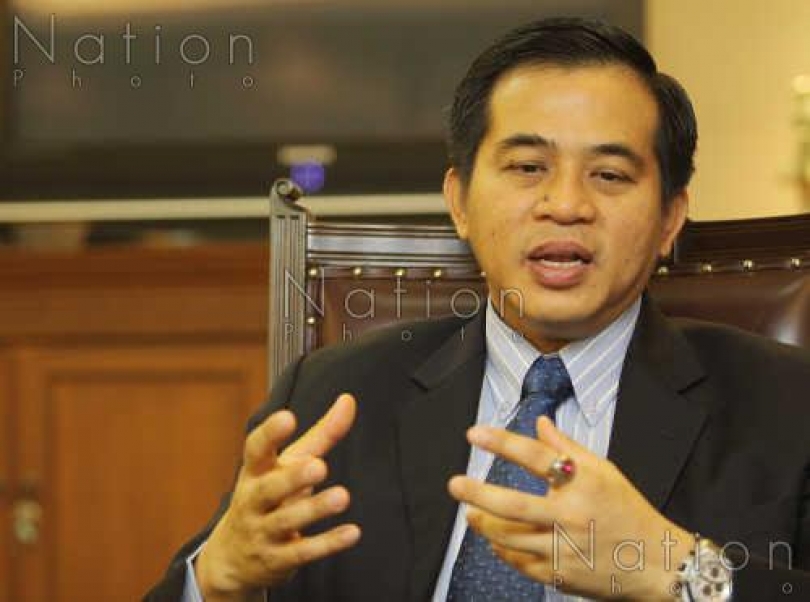Cabinet eyes revised bill on land and building tax

THE REVISED Land and Building Tax Bill will be put up for Cabinet approval in the new year as the Finance Ministry has prioritised tax reforms with the aim of expanding the tax base and increasing tax-collection efficiency.
This will be done alongside the National E-payment Master Plan, the single business account scheme, and a programme to encourage small and medium-sized enterprises to register within the tax system.
“All I can say now is that the draft bill for the land and building tax will definitely go before the Cabinet within the next 365 days, but the details on its structure and rates cannot be revealed until the Cabinet approves them,” permanent secretary Somchai Sujjapongse told reporters at the ministry yesterday.
The former deputy prime minister in charge of economic affairs, MR Pridiyathorn Devakula, and former finance minister Sommai Phasee had signed off on the bill and it was about to go before the previous Cabinet for approval before a reshuffle. The current economic team led by Deputy Prime Minister Somkid Jatusripitak decided to put the matter on hold for further revision.
Under the previous draft, a tax rate of 0.05 per cent would have been collected from farmland, a rate of 0.1 per cent was to be applied to properties used as private residences, and vacant or unutilised land were to be subject to 0.5 per cent.
Homes with appraised value of Bt1.5 million or less would have been exempt from tax, while a 0.05-per-cent tax on private residences appraised at Bt1 billion to Bt5 million was also proposed. These rates and exemptions were put under revision. Somchai said there would be a lot of positive changes after the revision that would make the tax “more acceptable for the public, as there is flexibility and local governments will also receive higher income”. He said the revision was almost “100 per cent finished”, as the Fiscal Policy Office had handed the draft to Finance Minister Apisak Tantivorawong yesterday for final touches.
If the Cabinet okays the draft, it will be handed over to the National Legislative Assembly for the first, second and third readings before the bill can become law.
Somchai said other priorities for the Finance Ministry were its new capital market development plans to provide more access for SMEs and new products that will help the country cope with an ageing society and environmental problems, along with the implementation of reforms of special financial institutions.
Private investment
Meanwhile, the ministry has continued to encourage the private sector to invest by stressing that it should take advantage of the government’s stimulus measures before they expire at the end of 2016. These include tax deductions for the purchase of machinery and for expenditure on research and development.
The ministry estimates that private investment, which accounts for 24 per cent of gross domestic product, has to expand by at least 5 per cent next year in order to simulate domestic consumption (51 per cent of GDP) and meet the 2016 GDP growth projection of 3.8 per cent.
Private investment and domestic consumption will be backed by acceleration of government spending (16 per cent of GDP) and the expected continued excellent performance of the tourism sector (11 per cent of GDP) in the new year. These should be able to compensate for the export slowdown (65 per cent of GDP), which is predicted to expand by less than 2.5 per cent in 2016.
RELATED





